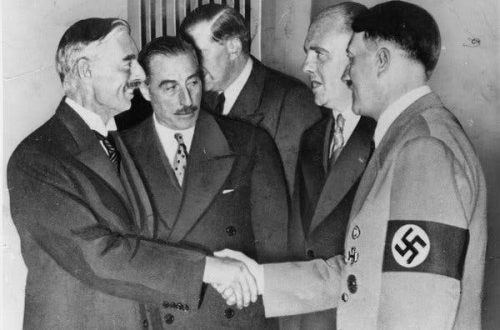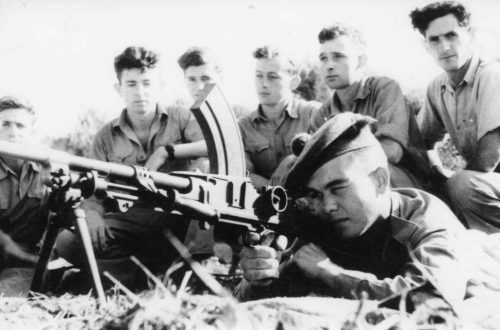Guest post by Andrew Murphy
With the recent release of a new batch of Nixon tapes, once again we got to see the amoral side of how Nixon and Kissinger practiced statecraft. I happened to mention in polite conversation– with a GOP apparatchik who once campaigned for Nixon– the dark side of Nixon’s foreign policy. Specifically that even the crown jewel of his foreign policy, the opening to China, came at the cost of turning a blind eye to one of the most horrific genocides of the 20th Century, in Bangladesh. Of course my GOP friend accused me of exaggeration and revisionism, so for those ignorant or skeptical about this claim, let’s open the vault.
However one myth should be put to rest. Many Nixon detractors like to suggest that the only reason Nixon went to China in 1972 was for cynical political reasons. But in fact, Nixon as a private citizen had written in 1967 an essay “Asia After Viet Nam,” which explored a possible thawing of Sino-American relations. So whatever faults the man had, which were many, an opening to China was a legitimate intellectual turnabout for a man who once accused Democrats of near treason for suggesting the same thing a decade previously.
Richard Nixon was able to pull off his opening to China by way of Pakistan– in particular by dealing with that country’s ruler General Yahyn Khan. Both Nixon and Kissinger hated the Indian leader, Indira Gandhi and India in general. Kissinger once infamously referred to Gandhi as “the bitch” and the Indian people as “bastards.” Nixon, not to be outbid in any sort of ethnic bashing, called the Indians, “slippery, treacherous people.” So the administration clearly was going to lean toward India’s primary antagonist, Pakistan, in foreign relations. Nixon and General Khan first met on October 25, 1970. Nixon broached the subject of using Khan as a go-between with the Chinese. Kissinger’s previous attempts to open backdoor channels with China by way of Romanian contacts and his friend, Jeane Sainteny, had failed, so Khan’s agreement was music to Nixon’s ears.
At what price were Nixon and Kissinger willing to go to keep General Khan as their silent emissary? On July 19, 1971, Kissinger briefed the President and members of the White House staff on the upcoming trip to China. Kissinger laughed toward the end and said: “The cloak and dagger exercise in Pakistan arranging the trip was fascinating. Yaha hasn’t had so much fun since the last Hindu massacre.”
In fact General Khan had unleashed Operation Searchlight, a genocidal plan which the general and his army had been planning for months, to end once and for all their “troubles” with East Pakistan (now Bangladesh). One year before, the Awami League, which represented East Pakistan, won a majority of seats in the National Assembly, giving them a chance to end the domination of West Pakistan over East Pakistan affairs. This was something that General Khan refused to tolerate and thus planned to end the influence of East Pakistan once and for all by murdering the intellectual, cultural and political elite. Khan told his supporters, “Kill three million of them and the rest will eat out of our hands.”
The Pakistan military got their buckets of blood for their general. Although estimates of the number killed have varied widely, Time magazine reported: “Most counts of the genocide arrive between 1 million and 3 million people killed.” Nearly 10 million refugees crossed into India. Hindus were singled out— which makes Kissinger’s “joke” especially shocking. Conservative estimates are that nearly 200,000 women were raped.
American counsel general to East Pakistan Archer Blood and others in the State Department were appalled with what was going on in Pakistan: wholesale murder, rape and ethnic cleansing while the United States was silent. This prompted Blood to send the famous Blood telegram through the dissent channel to the State Department:
Our government has failed to denounce the suppression of democracy. Our government has failed to denounce atrocities. Our government has failed to take forceful measures to protect its citizens while at the same time bending over backwards to placate the West Pakistan dominated government and to lessen any deservedly negative international public relations impact against them. Our government has evidenced what many will consider moral bankruptcy,(…) But we have chosen not to intervene, even morally, on the grounds that the Awami conflict, in which unfortunately the overworked term genocide is applicable, is purely an internal matter of a sovereign state. Private Americans have expressed disgust. We, as professional civil servants, express our dissent with current policy and fervently hope that our true and lasting interests here can be defined and our policies redirected.
Blood had no idea who he was pleading with. Nixon and Kissinger were not about to be swayed by ethics and morality. Several weeks after receiving the Blood telegram, Nixon wrote on a memo from Kissinger that in no way was the USA to “squeeze” General Khan or Pakistan over their genocide. Blood would soon be transferred out of his position to prevent him from being a further thorn in General Khan’s blood-soaked paw.
One month after Operation Searchlight had begun, Kissinger sent a note to General Khan thanking him for his “delicacy and tact.” Kissinger historian Walter Isaacson describes Kissinger’s note as an “odd description” for a ruler in the midst of murdering millions.
Meanwhile India was in a state of emergency as millions of refugees came across their border from East Pakistan fleeing almost certain death from the Pakistan military. Humanitarian groups began to raise money to aid East Pakistan. Nixon and Kissinger were furious that they may have to slobber (Nixon’s words) over Gandhi to keep India from attacking West Pakistan. When Nixon learned that former Beatle George Harrison was teaming up with Indian singer Ravi Shankar to have a “Concert for Bangladesh,” he asked Kissinger: “So who is the Beetle giving the money to- is it the goddamn Indians?………We have to keep India away.”
Despite Nixon’s “slobbering” over Gandhi at the White House at a state visit, she would have no more of General Khan’s bloodbath and launched the Indian army into East Pakistan. Quickly the Indian army defeated Pakistan, and General Khan raised the white flag only after 10 days. India restored the democratically-elected leadership of East Pakistan. However, while the brief India-Pakistan war was underway, Nixon and Kissinger continue to supply Pakistan military aid (and lied to Congress about it), cut off economic aid to India and accused India of being the troublemaker in the region, not Pakistan. Nixon even sent the USS Enterprise to the Bay of Bengal to try and scare India, and tried to get the USSR and China to persuade India to back off.
The American ambassador to India, Kenneth Keating, was equally shocked at the callous statecraft Nixon and Kissinger were playing in appeasing General Khan at all costs. When Ambassador Keating pleaded with Nixon that India was the real ally and something needed to be done to stop the bloodletting, Nixon told Kissinger:
“I don’t want him (Ambassador Keating) to come in with that kind of jackass thing with me….Keating, like every ambassador who goes over there, goes over there and gets sucked in.”
Kissinger responded:
“Those sons-of-bitches, who never have lifted a finger for us, why should we get involved in the morass of East Pakistan.”
Of course the morass that Kissinger was speaking of was one that their Pakistani ally had got into in the first place. There would have been no war with Pakistan if it had not been for Operation Searchlight and millions of refugees coming across the Indian border. Amazing how two men who were supposed to be gurus of statecraft were unable to even acknowledge to themselves the consequences of General Khan’s reckless murder spree.
So let’s do a body count. The cost of having General Khan as their secret emissary to China was 1.5 million dead East Pakistanis, 10 million refugees and a war between India and Pakistan that took the lives of 14,000 Indians and 15,000 Pakistanis.
On February 21, 1972, Air Force One landed in China and Nixon and Kissinger would get the foreign policy coup that they had been working on since 1970. But those photo ops with Chairman Mao and Zhou Enlai came a terrible cost. The United States sacrificed its moral authority as it sided with a ruthless dictator who murdered hundreds of thousands and tried to undermine the largest democracy in Asia.
One has to wonder why these inconvenient facts are never presented to Dr. Kissinger when he appears on TV before the groveling sycophants who interview him.


